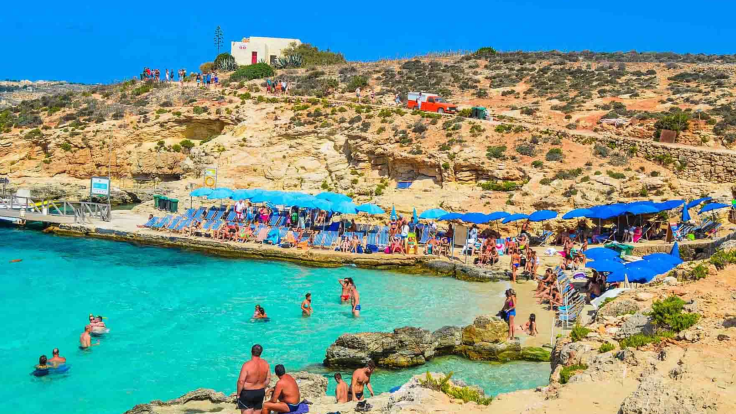Mediterranean Paradise Branded 'Most Beautiful Spot' Now Overrun By Tourists And Rats
The island of Comino, in Malta, was one of the most famous destinations on Instagram

Comino, once hailed as the 'most beautiful island in the Mediterranean', is now at the centre of a growing environmental disaster. Known for its iconic Blue Lagoon and crystalline waters, the tiny Maltese island was once a hidden gem – until it became a social media sensation. With thousands of tourists flooding in daily to capture Instagram-worthy shots, what was once paradise is quickly turning into a pest-ridden cautionary tale of overtourism gone awry.
The picture-perfect island, featured in films such as The Count of Monte Cristo, Swept Away, and Revelation, has seen its popularity soar in recent years. But with that fame has come a heavy price. According to the Daily Mail, Comino now welcomes up to 10,000 visitors a day – a figure wildly disproportionate to its size and ecological capacity.
Overcrowding and Rats: A Crisis in Paradise
The unprecedented surge in tourist numbers has overwhelmed the island's infrastructure and triggered a wave of environmental challenges. The most alarming of these is a rat infestation fuelled by the heaps of rubbish left behind by careless visitors. Litter, including discarded pineapple skins and takeaway containers, is scattered across Comino, particularly near the ecologically sensitive Blue Lagoon.
This growing waste problem has led to a surge in rodent populations that now threaten the island's native biodiversity, including the vulnerable Yelkouan Shearwater seabirds. The situation is so dire that some areas now resemble a 'forsaken country', with makeshift structures and refuse tarnishing the island's once-pristine image.
Comino, a designated Bird Sanctuary and part of the EU's Natura 2000 network, plays host to migratory birds and native flora, including rare endemic shrubs. The surge in rat populations and pollution poses a serious threat to its delicate ecosystem.
Who's Trying to Save Comino?
In response to the crisis, several environmental groups have launched urgent initiatives to curb the damage and restore Comino's natural balance. Malta Environment and Friends of the Earth Malta have partnered to launch the 'Ditch the Waste – Save Comino' campaign. The project recently received a £54,000 ($70,000) grant through the Conservation Collective, backed by luxury watchmaker Hublot and British band Depeche Mode.
Their mission is clear: to reduce the amount of waste polluting Comino's shores, educate visitors about sustainable tourism, and encourage behavioural change. Their strategy includes introducing a cup deposit scheme, reusable beach item boxes, and even launching a composting system to manage organic waste more effectively.
'Food stands contribute to waste and litter including discarded pineapple skins creating unpleasant conditions, especially near the ecologically sensitive Blue Lagoon,' Malta Environment said in a statement. 'This is impacting Comino's biodiversity, including a spike in rats which are a threat to native species.'
Martin Galea de Giovanni, director of Friends of the Earth Malta, emphasised the importance of their efforts. 'Friends of the Earth Malta is thrilled to be able to take concrete action to address the waste problems created by the oversaturated tourism activities that are threatening Comino's unique and fragile nature,' he said. 'We hope that these efforts will influence tourists' perspectives and behaviour, and are part of our broader vision for restoring Il-Forn ta' Kemmuna as a focal point for sustainability on Comino.'
A Wake-Up Call for Sustainable Travel
As rats multiply and biodiversity suffers, Comino has become a textbook example of what happens when natural beauty is exploited for viral fame without accountability. While NGOs are working tirelessly to restore balance, the root of the issue lies in awareness — or the lack thereof — among tourists and operators alike.
This is not just a Maltese issue but a global wake-up call for sustainable tourism practices. Comino's story underscores the urgent need for travellers to respect the places they visit, and for local authorities to enforce protective regulations before irreparable harm is done.
Environmentalists hope their work will serve as a model for how small but meaningful changes – from reusable cups to proper waste disposal – can help reverse the damage. Until then, Comino remains both a warning and a battleground, where the war against overtourism, litter, and ignorance is being fought daily by those determined to preserve its fading paradise.
© Copyright IBTimes 2025. All rights reserved.






















